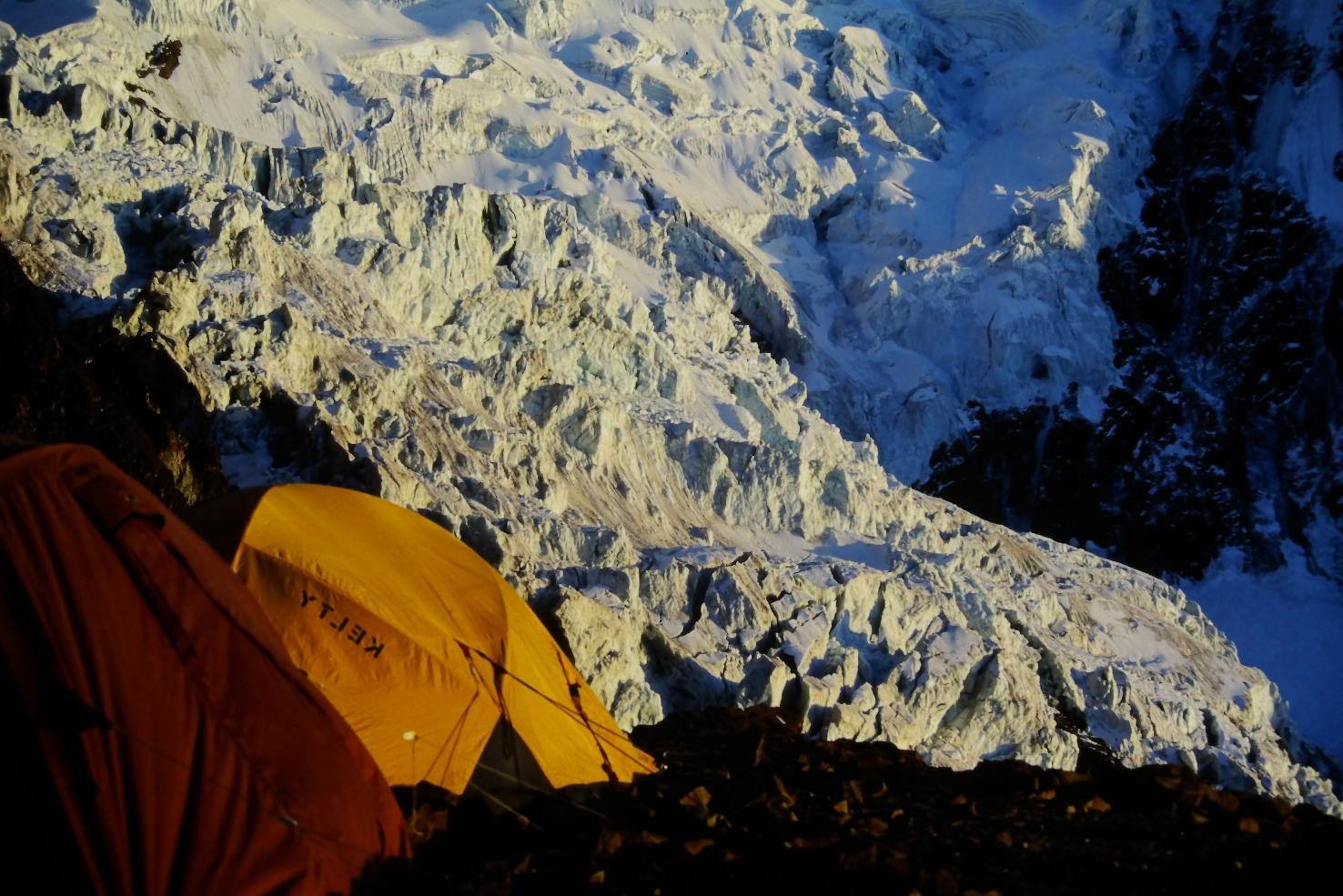
Nido de Condores Camp on Illimani, Cordillera Real - Bolivia
More recent work by Chimborazo et al. (2022) indicates that a combination of factors amplify warming at mountain tops, including a stronger warming high in the atmosphere, reduced cloudiness, and a reduction of snow and ice at high elevations. The latter two factors also favor enhanced absorption of sunlight, which promotes warming. The degree to which this warming is enhanced at high elevations in the future will depend on the greenhouse gas emission pathway we follow.
On a global scale, we contribute to work lead by the Mountain Research Initiative's Elevation Dependent Warming Group, which recently completed a thorough review of EDW in different mountain regions of the globe.